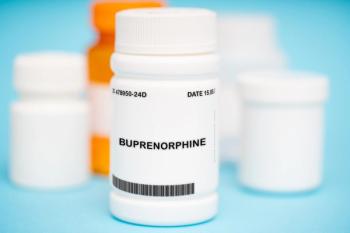
N.Y. phasing in new Rx blanks to deter fraud
Under new budget legislation signed by Gov. George Pataki, as of April 19, 2006, all written prescriptions in New York State-covering both controlled and noncontrolled substances-must go on new, bar-coded, serialized Rx blanks. In addition, as of June 2005, pharmacists must report information about their controlled substance dispensing record electronically to the state.
Under new budget legislation signed by Gov. George Pataki, as of April 19, 2006, all written prescriptions in New York State-covering both controlled and noncontrolled substances-must go on new, bar-coded, serialized Rx blanks. In addition, as of June 2005, pharmacists must report information about their controlled substance dispensing record electronically to the state.
These moves put New York in a league with California, which recently moved to a similar system that combines a tamper-resistant Rx blank and an electronic database (Drug Topics, Nov. 3, 2003).
At a recent Pharmacy Regulatory & Legislative Update meeting, sponsored by the Pharmacists Society of the State of New York (PSSNY), James Giglio, director of the New York State Bureau of Controlled Substances, explained the steps involved in the transition to the new system
Physicians must register with the bureau in order to prescribe under the new system. Giglio estimates there are 120,000 prescribers in the state. The bureau expects to issue somewhere around 220 million Rx blanks, which would be free of charge to prescribers. From now until April 2006, when the new system is fully implemented, both existing and the serialized Rx blanks could coexist.
There are other changes pharmacists should be aware of, Giglio continued. Out-of-state prescriptions, including those for Schedule IIs and benzodiazepine, no longer need to be on official Rx forms. Instead, they could be on white paper, he said. However, with this liberalization, the state is imposing a new requirement: All information on controlled substances dispensed, covering original orders, not refills, must be reported electronically to the state. At present, 98% of pharmacies are transmitting their controlled substance script information electronically, but there are still some 150 pharmacies that are submitting their CS information manually. This practice will no longer be acceptable as of June 2005, when only electronic data, on floppy disk or CD, will be accepted, Giglio warned.
As part of this new initiative, Giglio told the audience, his office would be sending letters to physicians to alert them about their patients who are engaged in doctor shopping. Physicians would be encouraged to steer these patients to rehabilitation programs, he added.
If the bureau had its druthers, it would rather opt for electronic prescribing, which would obviate the need for paper prescriptions, Giglio acknowledged. However, the state cannot switch to e-prescribing until the Drug Enforcement Administration first comes out with its standards, which it is now preparing. As soon as DEA issues its requirements, New York will put forth its own regulations, he said. Between the two sets of requirements, he expects DEA's to be the more stringent and to become the eventual standard for all prescriptions.
According to William Scheer, president-elect of PSSNY, the association originally opposed the new Rx blanks. It relented when the state proposed to provide some regulatory relief in the form of not requiring covers, or originals, for Medicaid Rx refills. Scheer added that the state medical society also supports the serialized Rx forms.
How are New York pharmacists reacting to this new program? Reaction is "generally favorable," noted Selig Corman, director of professional affairs for PSSNY. The whole idea behind this initiative is to reduce fraud, he explained. If the state can lower the amount of phony activity that's going on, pharmacists hope that this will translate to more reasonable Medicaid reimbursement to them, he explained.
On another subject, Giglio told the audience that, under new regulations passed in the state, pharmacists could now supply a small quantity of controlled substances for use in emergency kits in nursing homes, which need not be DEA registrants. Pharmacists who do this must set up procedures to ensure that there's good accountability for the drugs dispensed.
Newsletter
Pharmacy practice is always changing. Stay ahead of the curve with the Drug Topics newsletter and get the latest drug information, industry trends, and patient care tips.

























